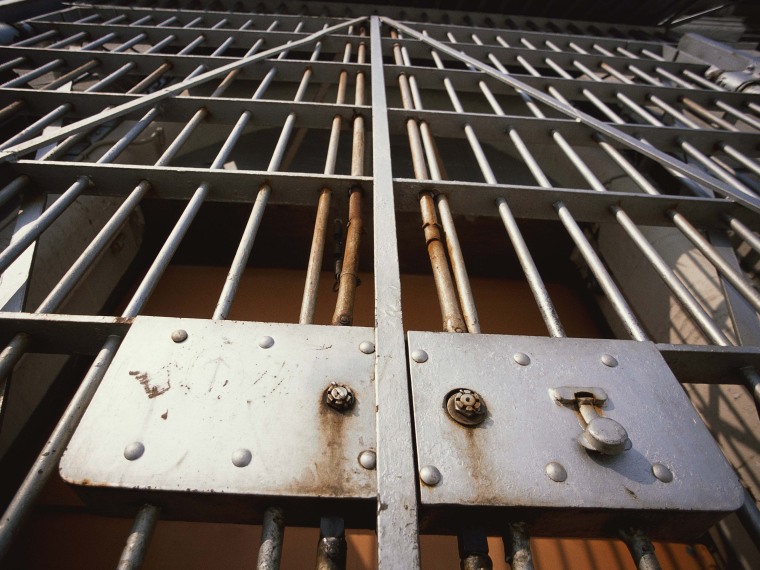On Tuesday, the ACLU of Ohio released a timeline tracing the decline of the country's first privately- owned prison. Ohio Governor John Kasich first proposed privatizing prisons in March of 2011 as a way to climb out of an $8 billion budget deficit. The Ohio Department of Rehabilitation and Correction boasted $3 million in savings "for Ohio taxpayers compared to similar state facilities." However, since being purchased for $72.7 million from the Corrections Corporation of America (CCA), the largest private prison corporation in the United States, the prison has racked up countless violations.
In an audit last October, the CCA was slapped with 47 violations including having smaller-than-state standard housing units: "all housing units prove less than the requirement of 25 feet of unencumbered space per occupant." Later that same year, the CCA failed yet another inspection. And now, according to Think Progress, the CCA's Lake Erie prison "is reportedly overcrowded at 130% capacity, with single-person cells holding 3 inmates each, according to internal documents obtained by the ACLU." Since the U.S. leads the world in incarcerations with 2.2 million Americans behind bars, it is no surprise that state budgets are being overwhelmed by prison costs. But instead of trying to legislate prison reform, Gov. Kasich decided to delegate responsibility to private systems that have an incentive to find ways to keep profits up.
The CCA is not shy about its goals, stating in the company's 2010 Annual Report: "We believe we have been successful in increasing the number of residents in our care and continue to pursue a number of initiatives intended to further increase our occupancy and revenue."
The ACLU's report on the failings of CCA's Lake Erie Prison highlights the need for an overhaul in the prison system, not privatization of it. And there are ways. Last month, Senators Rand Paul of Kentucky, a Republican, and Patrick Leahy of Vermont, a Democrat, introduced the Justice Safety Valve Act, a bill that would begin to alleviate the problem of overcrowded prisons by altering mandatory minimum sentences for non-violent drug offenses.
